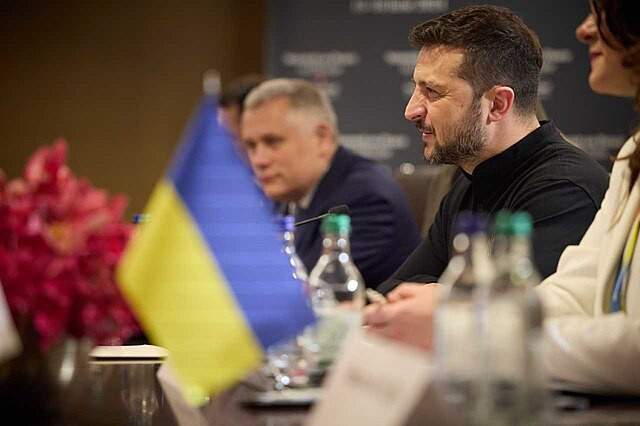Ukrainian forces occupying Russian territory in Kursk are facing the prospect of withdrawal as Russian troops advance, threatening to encircle approximately 10,000 Ukrainian soldiers, The Telegraph reported on March 8. The potential retreat, if realized, would mark a significant battlefield reversal and weaken Kyiv's negotiating position in future peace talks.
The dire situation follows a series of Russian breakthroughs in the region, disrupting Ukrainian supply lines and severing access to ammunition and food. Open-source intelligence maps indicate that Russian forces have nearly cut the Ukrainian position in two, with only a narrow land corridor remaining for withdrawal.
"The situation (for Ukraine in Kursk) is very bad," Pasi Paroinen, a military analyst with the Finland-based Black Bird Group, told Reuters. "Now there is not much left until Ukrainian forces will either be encircled or forced to withdraw. And withdrawal would mean running a dangerous gauntlet, where the forces would be constantly threatened by Russian drones and artillery."
Compounding Ukraine's difficulties, the U.S. halted intelligence sharing with Kyiv on March 5, part of President Donald Trump's broader effort to pressure Ukraine into ceasefire negotiations. A senior official in President Volodymyr Zelensky's office told Time that the intelligence cutoff has directly impacted operations in Kursk, leaving Ukrainian forces vulnerable to Russian counteroffensives.
Russia's push to reclaim Kursk has been bolstered by North Korean troops, who played a key role in dismantling Ukrainian supply routes, according to The Telegraph. Up to 12,000 North Korean soldiers were deployed to the region last fall, initially pulling back in January before being redeployed in February.
Ukraine's military launched its surprise incursion into Kursk Oblast in August 2024, capturing approximately 1,300 square kilometers (500 square miles) of Russian territory-the first foreign invasion of Russia since World War II. The operation was intended to shift the war's burden onto Russian soil, divert Moscow's military resources, and serve as a bargaining chip in potential negotiations.
Since then, Russian forces have steadily regained ground, retaking 64% of the captured territory, according to Russian military reports. Ukrainian soldiers speaking anonymously to The Kyiv Independent confirmed the dire conditions in Kursk, stating that supply chains had been severed in recent days.
Military analyst Yan Matveev, writing on Telegram, described Ukraine's predicament as a difficult choice: "The only argument in favor of holding the bridgehead is political. To use the remnants of the bridgehead for bargaining. And also a little morale-after all, a retreat is a retreat."
Deep State, a Ukrainian military monitoring group, reported that Russian forces had advanced near Kuryilovka, further constraining Ukraine's ability to maneuver. The group warned that Russian drones, particularly FPV strike drones, were effectively targeting Ukrainian troops attempting to move supplies in and out of Kursk.
Yuri Podolyaka, a Russian war blogger, claimed Russian forces had driven a wedge up to four kilometers deep near Sudzha, a key Ukrainian stronghold in Kursk. "The Russian Armed Forces have driven a deep wedge (up to 4 kilometres deep) and actually reached the alternative supply route to Sudzha (which the enemy was using because the main road could not be used)," Podolyaka wrote.
Despite mounting pressure, Ukrainian forces have launched counterattacks near Sudzha in an attempt to disrupt Russian logistics, former Ukrainian commander Evhen Dykyi told Ukrainian Radio NV. "Now it's our turn to strike at their rear and logistics. We will see how successful this counter action turns out to be," he said.
Ukraine's General Staff reported on Friday evening that it had repelled 29 Russian attacks in the Kursk region in the past 24 hours, while Russia launched 22 airstrikes targeting Ukrainian positions. However, as the encirclement tightens, Kyiv faces a crucial decision: risk a withdrawal under fire or hold out in increasingly untenable positions.




